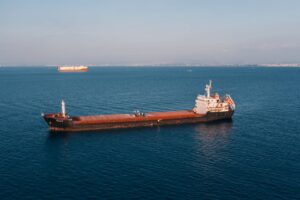When it comes to international shipping, understanding the difference between Full Container Load (FCL) and Less-Than Container Load (LCL) is key. These are two distinct methods of transporting goods via ocean freight, each tailored to different cargo volumes and shipping needs. By knowing the difference of FCL vs. LCL, you can make informed decisions that optimize your supply chain efficiency and cost-effectiveness.
When shipping goods internationally, understanding the difference between Full Container Load (FCL) and Less-Than Container Load (LCL) is crucial for making informed and cost-effective decisions. These two distinct ocean freight methods cater to varying cargo volumes, offering unique advantages depending on your shipment size and budget.
Let’s delve into the specifics of each to help you determine which option best suits your needs.
Full Container Load (FCL) Shipping
FCL shipping is when your cargo occupies an entire shipping container, without sharing space with other shipments. This is typically the preferred option for large shipments that can fill a container or when a shipper has a significant volume of cargo to justify the cost of a full container. Standard FCL containers are typically 20 or 40 feet in length.
Less-Than Container Load (LCL) Shipping
LCL shipping is ideal for smaller shipments that don’t require a full container. Your cargo will be consolidated with goods from other shippers in a shared container. This is a cost-effective option for businesses with lower shipment volumes.
Choosing Between FCL & LCL Shipping
When it comes to shipping LCL vs FCL, the choice can be a determining factor in the success of your international logistics. Selecting the right shipping method hinges on several factors:
Cargo Volume
The volume of your cargo is a primary factor in determining the most suitable option. If your shipment is large enough to fill a standard 20-foot or 40-foot container, FCL is generally the more cost-effective choice. For shipments smaller than 15 cubic meters (CBM), LCL provides a more economical solution by allowing you to share container space with other shippers.
Shipping Cost
FCL shipping comes with a fixed cost for the entire container, regardless of whether you utilize the full capacity. Conversely, LCL shipping costs are calculated based on the actual volume or weight of your cargo, typically measured in CBM. While FCL offers economies of scale for larger shipments, LCL can be a more budget-friendly option for smaller loads due to shared container expenses.
Shipping Speed and Reliability
FCL shipments typically enjoy faster transit times as they travel directly to their destination without the need for consolidation or deconsolidation at intermediary ports. LCL shipments, involving multiple loading and unloading operations, may experience longer transit times. However, during peak shipping seasons or for less time-sensitive shipments, the speed difference may not be a significant factor.
Handling & Damage Risks
FCL shipments are less prone to damage as they involve fewer handling points throughout their journey. The cargo remains within the same container from origin to destination, minimizing the risk of mishandling or damage. LCL shipments, due to the consolidation and deconsolidation process, are exposed to more handling, potentially increasing the risk of damage. If you are shipping fragile or high-value items, FCL may offer greater protection.
Optimize Shipping with CrimsonLogic
Choosing between FCL and LCL requires a thoughtful assessment of your unique shipping requirements. Factors like cargo volume, budget, timeline, and risk tolerance all play a role in determining the most suitable option for your business.
But the decision doesn’t stop at sea freight. The principles of FCL and LCL extend to other modes of transportation as well, such as trucking. Full Truckload Shipping (FTL), akin to FCL, involves using an entire truck for your cargo, while Less-Than Truckload (LTL) shipping consolidates smaller shipments. Understanding these options is equally important for optimizing your domestic logistics.
CrimsonLogic’s expertise in trade compliance and logistics solutions can hep you navigate shipment processes. We offer a comprehensive suite of tools including ISF filing software and ocean freight management software to help you navigate the complexities of both international and domestic shipping.
Ready to unlock the full potential of your shipping operations? Contact CrimsonLogic today to discover how our tailored solutions can enhance your efficiency, reduce costs, and drive business growth.





